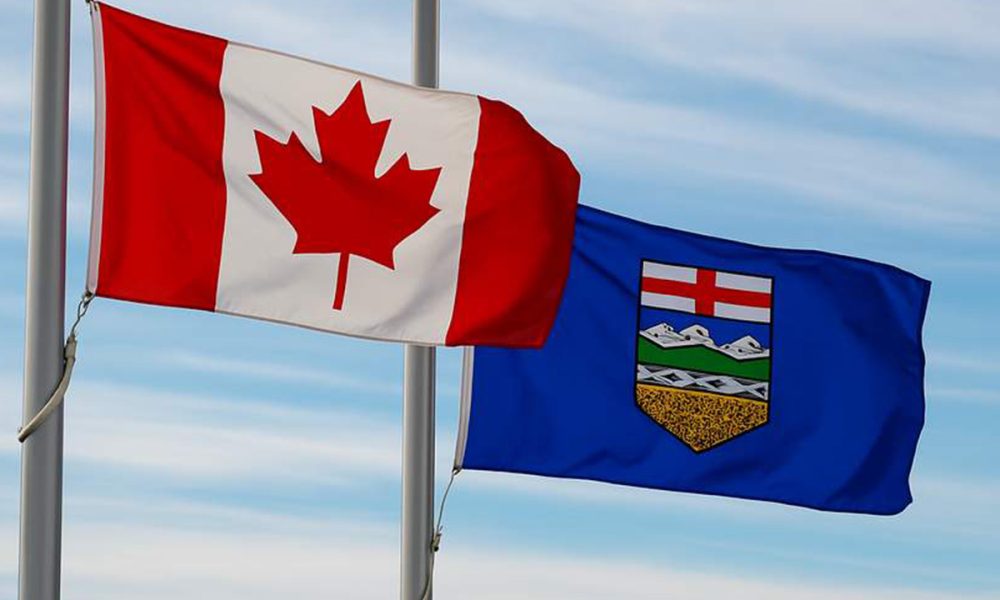

Canada
MediaTroopers Secures Sports Betting Vendor License in Virginia
Leading digital marketing agency MediaTroopers that specializes in online gaming in regulated US jurisdictions, has completed the application process and received its Virginia Sports Betting Vendor License. With the license granted by the Virginia Lottery, MediaTroopers can now expand its operations to Virginia and provide marketing services for state-licensed sports betting operators.
MediaTroopers will use its extensive in-house mobile and digital-media expertise to introduce in Virginia the exciting new paradigm of online sports betting. It will utilize its new and existing partnerships with leading sports betting app operators in other regulated states.
Sam Segal, CEO of MediaTroopers said: “We are excited to receive this vote of confidence from the government and the people of Virginia. However, we are aware that along with this big opportunity comes a serious responsibility to promote fairness and safe, responsible gambling. With a population of around 8.5 million, which is similar in size to one of our most successful states [New Jersey], our prospects for Virginia are huge.”
MediaTroopers intends to use this time to provide its wide audience with continuous news about sports events, predictions, odds, offers and updates on the progress towards the launch in the Old Dominion State.
When asked about the company’s plans for the near future, Segal added: “The launch in Virginia is right around the corner. So, we are already working around the clock providing users of all our media channels with valuable news, information and knowledge. So, Virginias interested in sports betting can hit the ground running from day 1.”
Talking about how to overcome the differences between states, he said: “Our biggest strengths are our flexibility and agility. Aside for media capabilities, we pride ourselves in the ability to quickly expand reach to new audiences and adjust our content to new states. We are coming off the back of a successful launch in Iowa, and now preparing for the Michigan launch. We will study and prepare just as hard for Virginia and do it again.”
Although Virginia does not have any of its own major league sports franchises, neighboring NFL’s Washington Football Team and NHL’s Washington Capitals have their operational headquarters and practice facilities in the Northern part of the state. In addition to the massive following of teams from neighboring states, many local sports fans hope that the momentum brought by sports betting will help to finally bring major sports franchises to Virginia.
MediaTroopers is currently licensed and operates in New Jersey, Pennsylvania, Colorado, Indiana, Tennessee, Illinois, Michigan, Iowa, West Virginia, and Washington D.C.
On its newest license in Virginia Segal added: “This is another milestone in our expansion and growth in the US regulated market. In addition to Virginia, there are a number of other states expected to launch sports betting this year, and we are already working closely with these states to be ready as soon as they go live.”
Bills to legalize sports betting in Virginia were passed in both the House and Senate in April 2020. After accepting a few amendments by Virginia Governor Ralph Northam, the bills were enacted into law in July 2020. The first sports betting apps and websites are expected to launch in the state in January 2021.
Canada
Golden Nugget Online Casino Debuts in Ontario

Golden Nugget Online Gaming has officially entered the Canada online casino market with its launch in Ontario.
Backed by DraftKings technology, the brand is now offering players a feature-rich mobile and desktop gaming platform. This move also marks the first time the Golden Nugget brand has expanded outside the US.
The casino debuted with more than 2000 slot titles, alongside blackjack, roulette, and craps. The platform is available on iOS and Android, ensuring accessibility across devices.
With its debut in “The Heartland Province,” Ontario becomes the fifth region where Golden Nugget operates, joining Michigan, New Jersey, Pennsylvania, and West Virginia.
Matt Kalish, President of DraftKings North America, noted that this development is a welcome opportunity for the brand to provide top-quality online casino gaming for players in a burgeoning iGaming market.
Kalish added: “Golden Nugget is one of the most iconic brands in gaming, and we are thrilled to be live in Ontario with its robust mobile casino offering. The Golden Nugget Online Gaming casino app offers hundreds of popular casino games, exclusive content, smooth navigation, premium support, and a dynamic loyalty program – all backed by DraftKings’ cutting-edge technology.”
Ontario’s regulated iGaming market is already crowded. iGaming Ontario reports that the province hosts 50 licensed operators and 87 active gaming websites. Importantly, online casinos account for 88% of cash wagers. In June alone, the vertical produced CA$243 million in net gaming revenue from CA$7.26 billion in total wagers.
Golden Nugget aims to stand out with both classic and exclusive content. Players can access land-based favorites like Huff N’ More Puff, Cleopatra, and Hypernova Megaways. Exclusive DraftKings titles such as Rocket, Dollar Up, and Quakey Shakey also enhance the library. Many jackpot titles even exceed $1 million.
The post Golden Nugget Online Casino Debuts in Ontario appeared first on Gaming and Gambling Industry in the Americas.
AGLC
Casino ATM Scam in Edmonton Reveals Money Laundering and Drug Links

Law enforcement in Alberta continues to search for the last suspect in a sophisticated fraud operation that targeted ATMs in Edmonton-area casinos and resulted in over CAD 1 million ($720,487) in losses throughout Western Canada.
The Royal Canadian Mounted Police (RCMP) has confirmed that Hisham Ismaeel, 28, remains at large with a province-wide warrant for his arrest. He faces charges of fraud exceeding $5000 and possessing proceeds of crime. Police have already arrested four other men linked to the scheme. Investigators describe the operation as a well-planned effort to exploit financial systems and clean dirty money.
The accused, Elliot Miao, 42, Van Bau Ta, 39, Hassan Jaafar Haydar Ahmad, 37, and Dennis Jones, 42, showed up in the Alberta Court of Justice last week. They face charges from fraud and money laundering to owning criminal property. Miao also has a narcotics trafficking charge after police found cocaine when they searched with warrants.
Investigators claim the group made coordinated withdrawals at several casino ATMs, timing their transactions to avoid getting caught. This action messed up ATM networks in the area and showed flaws in the systems that banks and casinos use to stop misuse.
The RCMP Federal Policing Northwest Region led an investigation that involved six search warrants in Edmonton. The Edmonton Police Service, the Financial Transactions and Reports Analysis Centre of Canada (FINTRAC), Alberta Gaming, Liquor and Cannabis (AGLC), and several banks supported this effort. Officials said the case shows how teamwork between public agencies and the private sector plays a key role in combating modern financial crime.
AGLC representatives pointed out that casino operators in the province must follow strict reporting and surveillance rules under Canada’s anti-money laundering laws. The specific casinos affected remain unnamed, but the Edmonton region has seven licensed facilities. AGLC said its policies helped spot problems and backed the RCMP’s investigation.
Compliance experts say this fraud shows how criminals change their methods to take advantage of weak spots in reporting limits and transaction checks. They claim that casinos, which deal with lots of cash, are still easy targets unless they keep improving their detection systems and teach their front-line workers to notice coordinated actions like several big withdrawals happening one after another.
For now, the case highlights both the money and crime aspects of casino-related fraud. Besides the million-dollar losses, finding drugs during the raids points to a bigger criminal operation where financial crimes and drug dealing overlap.
The post Casino ATM Scam in Edmonton Reveals Money Laundering and Drug Links appeared first on Gaming and Gambling Industry in the Americas.
Bragg Gaming
Bragg Confirms Cyber Attack – Hackers Access Internal IT Systems

Bragg Gaming Group, a leading online gaming technology provider, has confirmed a major cybersecurity incident that compromised its internal IT infrastructure in the early hours of Saturday, August 16, 2025.
The company detected unauthorized intrusion attempts that successfully breached its internal network, triggering an immediate and comprehensive incident response.
Key Takeaways
-
Bragg Gaming Group experienced a cybersecurity breach involving access to internal IT systems.
-
No customer personal data or payment information appears to have been compromised.
-
The company has enacted full containment and investigation protocols.
Details of the Breach
According to a preliminary forensic analysis by Bragg’s internal security team, the attack was a targeted breach aimed at the company’s internal computer environment. While the exact method of intrusion is still under investigation, early indicators suggest a sophisticated exploit of internal network vulnerabilities.
Fortunately, the company’s customer-facing systems, including sensitive user data and financial information, appear to have been unaffected. Bragg’s existing encryption protocols and access control systems successfully prevented the attackers from accessing customer information.
Immediate Response Measures
In response to the breach, Bragg launched a multi-tiered containment strategy, including:
-
Network Segmentation to isolate affected systems
-
Enhanced Monitoring of data flows across its Remote Games Server (RGS) platform
-
Security Audits of critical infrastructure, including the Bragg Hub and PAM systems
-
Engagement of Independent Cybersecurity Experts to assist in incident analysis and system hardening
Bragg’s Security Operations Center has also elevated its alert level, initiating 24/7 monitoring across all server clusters and network endpoints. In addition, company-wide penetration testing is now underway to proactively identify any residual vulnerabilities.
Business Continuity Maintained
Despite the severity of the breach, Bragg reports that its operations remain unaffected. All gaming services, including iCasino and sportsbook offerings across regulated markets, continue to function without disruption.
“While this incident is deeply concerning, we are confident in the rapid and thorough response initiated by our team,” a company spokesperson stated. “We remain committed to protecting our infrastructure, our partners, and most importantly, our players.”
Looking Ahead
As part of its response, Bragg has also launched mandatory security awareness training for all employees to reinforce best practices and prevent future incidents.
Cybersecurity analysts will continue working with Bragg to determine the full scope of the attack, improve system resilience, and maintain the trust of its users and stakeholders.
Bragg’s handling of the incident highlights both the evolving nature of cybersecurity threats and the importance of robust, responsive defense systems in the digital gaming sector.
Source: cybersecuritynews.com
The post Bragg Confirms Cyber Attack – Hackers Access Internal IT Systems appeared first on Gaming and Gambling Industry in the Americas.
-

 gaming3 years ago
gaming3 years agoODIN by 4Players: Immersive, state-of-the-art in-game audio launches into the next generation of gaming
-
EEG iGaming Directory8 years ago
iSoftBet continues to grow with new release Forest Mania
-
News7 years ago
Softbroke collaborates with Asia Live Tech for the expansion of the service line in the igaming market
-
News7 years ago
Super Bowl LIII: NFL Fans Can Bet on the #1 Sportsbook Review Site Betting-Super-Bowl.com, Providing Free Unbiased and Trusted News, Picks and Predictions
-
iGaming Industry8 years ago
Rick Meitzler appointed to the Indian Gaming Magazine Advisory Board for 2018
-
News7 years ago
REVEALED: Top eSports players set to earn $3.2 million in 2019
-
iGaming Industry8 years ago
French Senator raises Loot Boxes to France’s Gambling Regulator
-
News7 years ago
Exclusive Interview with Miklos Handa (Founder of the email marketing solutions, “MailMike.net”), speaker at Vienna International Gaming Expo 2018







